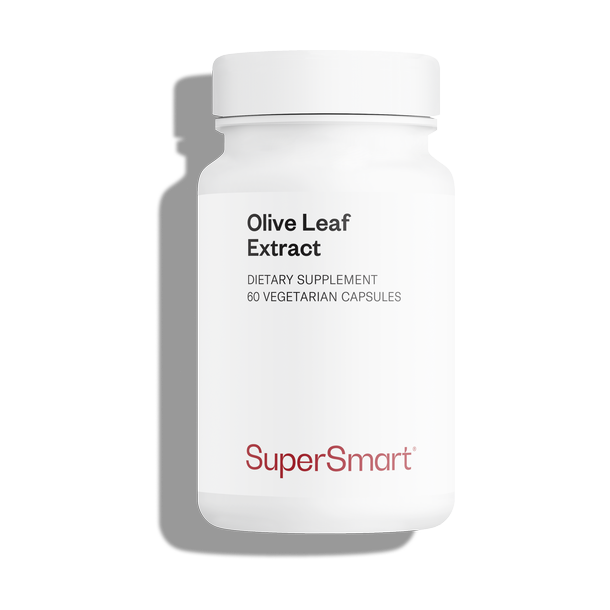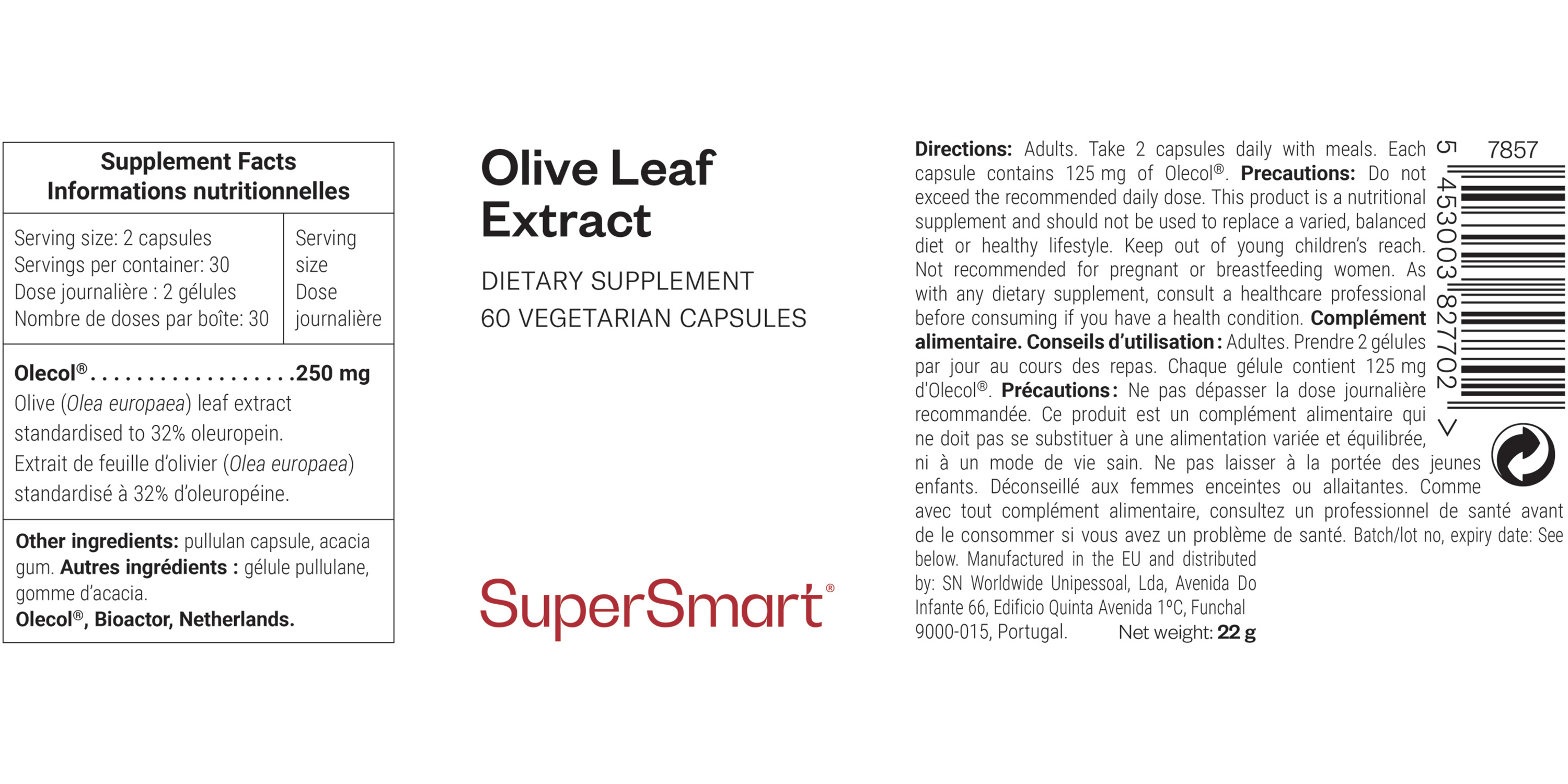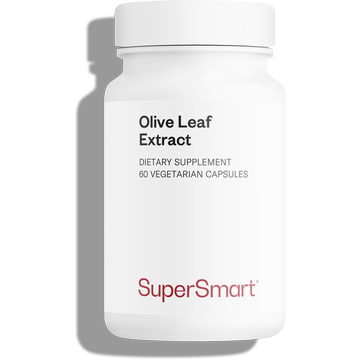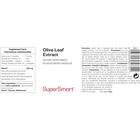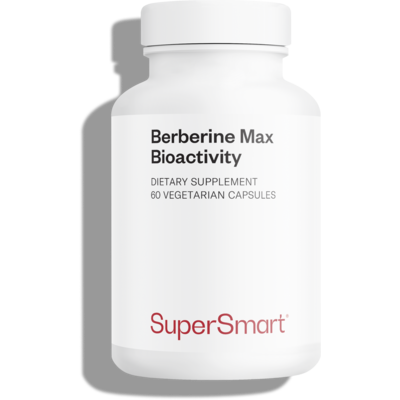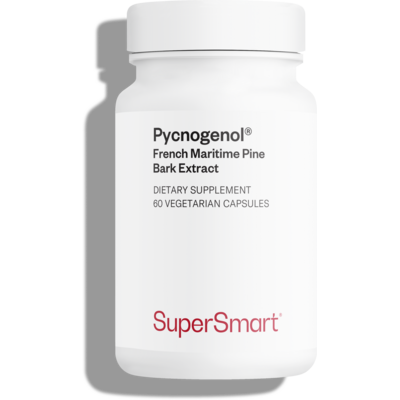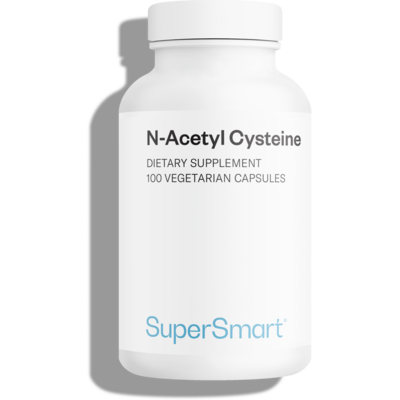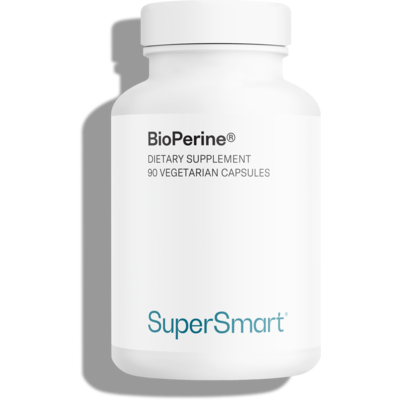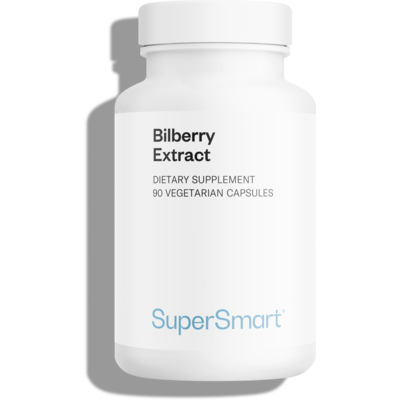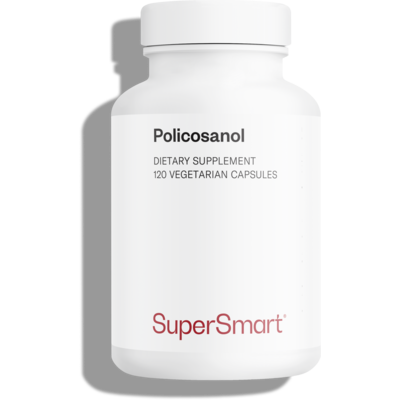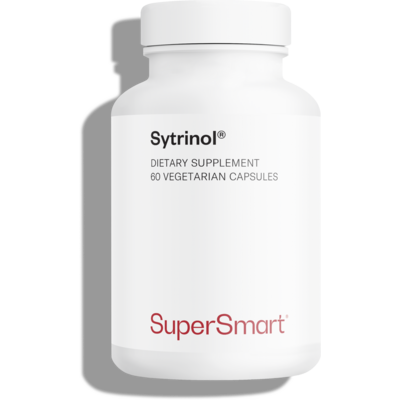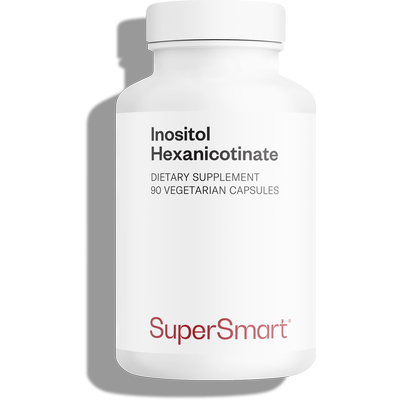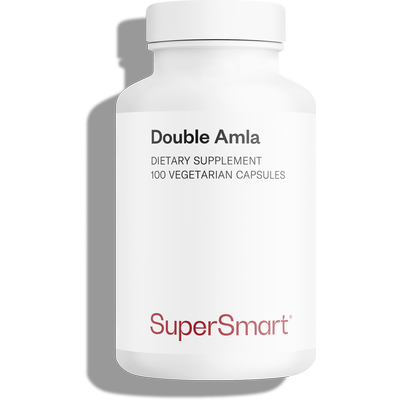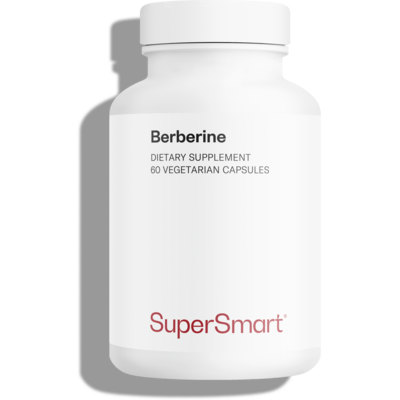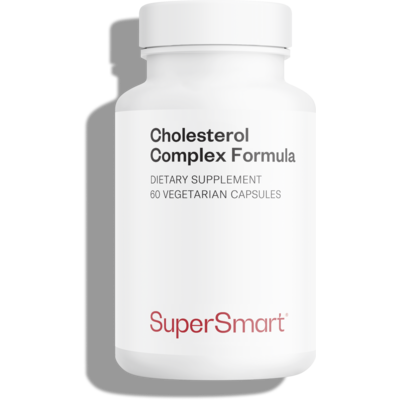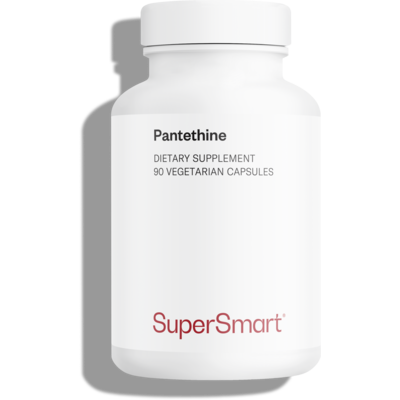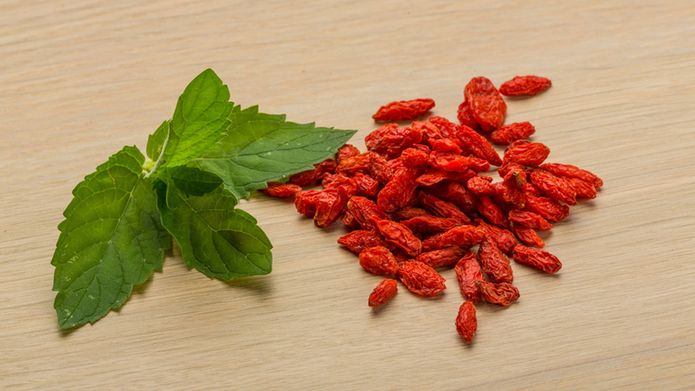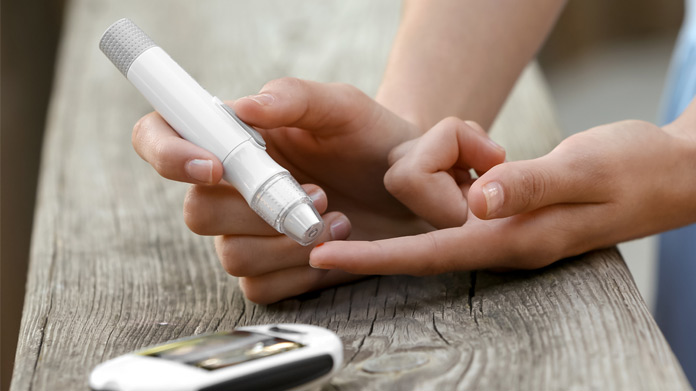Create Your Offer
Olive Leaf Extract is a natural formula in vegetarian capsules produced from olive leaves, designed to control lipidemia. It is supported by three clinical studies which have confirmed its ability to lower LDL-cholesterol and triglyceride levels, increase HDL-cholesterol, and fight lipid peroxidation, now available to buy at SuperSmart.
What Exactly is Olive Leaf Extract?
Olive Leaf Extract a natural-source dietary supplement produced from olive leaves. It contains a very high level of oleuropein, a bioactive phytonutrient specific to the olive tree, which helps control blood lipids and prevent carbohydrate absorption.
It is aimed at anyone who wants to improve their cardiovascular health and maintain the integrity of their blood vessels. Individuals with the following risk factors are likely to be particularly interested in this product:
- Those who are overweight;
- Those with type 2 diabetes;
- Those prone to circulation problems;
- Those with high blood pressure;
- Those who are stressed;
- Those who have hypercholesterolemia.
What Compounds are in Olive Leaf Extract?
The beneficial effects of the olive tree are attributed to its exceptionally high content in phenolic compounds, molecules known for their antioxidant potency. In the olive tree, these compounds play a part in defending the tree from insects, infection, multiple microbial attacks, and UV radiation (1-2), but they are also biologically active when ingested by humans. They are known to reduce the risk of a number of diseases by combatting free radicals and improving enzymatic balance.
Oleuropein is the most abundant phenolic compound in the olive tree (3) (accounting for around 25% of the extract). It is oleuropein that gives extra virgin olive oil its characteristic bitterness, but there are many other such compounds found in Olive Leaf Extract: apigenin, caffeic acid, catechins, coumaric acid, diosmetin, ferulic acid, gallic acid, hesperidin, hydroxytyrosol, luteolin, oleoside, quercetin, rutin, tyrosol, vanillin, verbascoside...
As the oleuropein in olive leaves has been scientifically shown to be responsible for the plant’s benefits, Olive Leaf Extract is formulated to contain an optimum amount of this compound.
What are the Mechanisms of Action of Olive Leaf Extract?
Olive leaves have been used in phytotherapy since antiquity apparently for their antilipidemic, antiseptic, and antiviral properties.
Scientific research has since confirmed these applications and identified new properties: antimicrobial (4-5), antiviral (6), antifungal (7), gastro-protective (8), blood glucose-lowering (9), blood pressure-lowering (10), antioxidant (11-12), antiatherogenic (13), hypolipidemic (14), anti-inflammatory (15), neuro-protective (16), vasodilatory (17) and anti-aging (18).
There are three precise mechanisms of action which are responsible for the majority of Olive Leaf Extract’s effects on the cardiovascular system:
1) Cholesterol-lowering action
The olive tree’s polyphenols, particularly oleuropein, act on cholesterol excretion (19). They promote the elimination of excess cholesterol via the bile ducts, duodenum and finally faeces.
2) Antioxidant action
The antioxidant potential of oleuropein is exceptional. When elderly institutionalized individuals followed a diet enriched with an extract of oleuropein and its derivatives for six weeks, their antioxidant capacity was shown to improve (20). It is a natural solution to combating oxidative stress and inhibiting LDL oxidation (21).
3) Action on sugar absorption
By binding to sucrase and maltase, two digestive enzymes, oleuropein limits sugar absorption and thus reduces spikes in blood glucose. It also does this by slowing down the activity of the sugar transporter, GLUT2.
Is it Supported by Scientific Studies?
The effect of Olive Leaf Extract capsules has been directly measured in three clinical trials (22).
1) One year’s supplementation with 250 mg a day
Following 12 months’ daily supplementation by subjects with elevated cholesterol levels, researchers recorded:
- A 20% reduction in 'bad' LDL-cholesterol.
- A 13% increase in 'good' HDL-cholesterol.
- A 10% decrease in total cholesterol and a 5% decrease in triglycerides.
2) Four weeks' supplementation with 250 mg a day
In overweight subjects, there was a significant improvement over four weeks in the expected ratio of coronary risk as compared with placebo. A clear decrease in triglycerides was observed.
3) Eight weeks' supplementation with 250 mg a day
The third study examined the ability of Olive Leaf Extract to reduce oxidative stress. Results showed that daily supplementation with 250 mg reduced levels of MDA (malondialdehyde) by almost a third, a urinary marker of oxidative stress.
Why use Extracts of Olive Leaf rather than Olives?
Studies suggest that the leaves and fruit are equally rich in oleuropein (23), but the olive leaf is considered a more renewable natural source for extraction (24). Hence its use in Olive Leaf Extract, and its ingredient Olécol®.
Five Good Reasons to Choose Olive Leaf Extract to Maintain Healthy Blood Vessels
1. The antioxidant content of olives depends to a large extent on variety, maturity, and preservation. Therefore, if you live a long way away from the Mediterranean region where they are grown, you ca not really rely on eating olives all year round to boost your cardiovascular health. With its exceptional and stable content in olive tree polyphenols, Olive Leaf Extract provides a solution to this problem, offering populations the world over the opportunity to fully benefit from the advantages of a Mediterranean diet.
2. Eating a Mediterranean diet is associated with a lower risk of all-cause mortality (25). Scientific studies have in large part attributed these protective effects to the role played by the olive tree (26).
3. The bioavailability of oleuropein in humans is very high – between 55% and 60% (27). Maximal plasma concentration occurs two hours after oral administration. Studies have also shown that oleuropein crosses the blood-brain barrier easily.
4.The Mediterranean diet was recognized by UNESCO in 2010 as an Intangible Cultural Heritage of Humanity.
5. Cardiovascular disease is the leading cause of mortality across the world, claiming more than 17 million lives each year.
Additional Steps to Maximise the Benefits of Olive Leaf Extract
To further enhance the efficacy of Olive Leaf Extract, you can adopt these additional measures throughout the supplementation period:
- Significantly increase your intake of fruit, vegetables, nuts, and whole grains;
- Make liberal use of herbs, spices, garlic, and onion;
- Only use olive oil for dressings and rapeseed oil for cooking;
- Eat at least one yogurt a day (preferably sheep’s milk);
- Limit your intake of poultry and red meat, and instead choose fish and seafood whenever possible;
- Be physically active every day (go for a walk after a meal, take part in sports, do some exercises...);
- Take a daily multivitamin supplement.
These measures are part of the Mediterranean diet which is based on the long-term food habits of Mediterranean populations. They are a good accompaniment to supplementing with Olive Leaf Extract though not essential for obtaining the benefits of this product.
Note: this product should not be used as a substitute for a varied, balanced diet and a healthy lifestyle. It is important to follow the guidelines on how to take it and the recommended dose, and to use it by the 'best before' date. It is not recommended for women who are pregnant or breastfeeding, or for children under 15. Keep out of children’s reach. Store in a cool, dry place.
Buy Olive Leaf Extract to help lower cholesterol and blood sugar.
WARNINGS
Do not exceed the recommended daily dose. This product is a nutritional supplement and should not be used as a substitute for a varied and balanced diet or a healthy lifestyle.
STORAGE
Store in a cool, dry place away from direct sunlight, heat, and humidity. Keep out of reach of children.
PREGNANCY AND MEDICAL CONDITIONS
If you are pregnant, breastfeeding, or have any medical conditions, consult your healthcare provider before using this product.
SUPPLEMENT INTERACTIONS
Consult your healthcare provider before use, especially if you are taking any medications or other supplements as there may be potential interactions.
Need Help?
Phone Number
+1 (786) 522-3907
From 9 am to 6 pm (EST)
Email Address
You May Also Like

